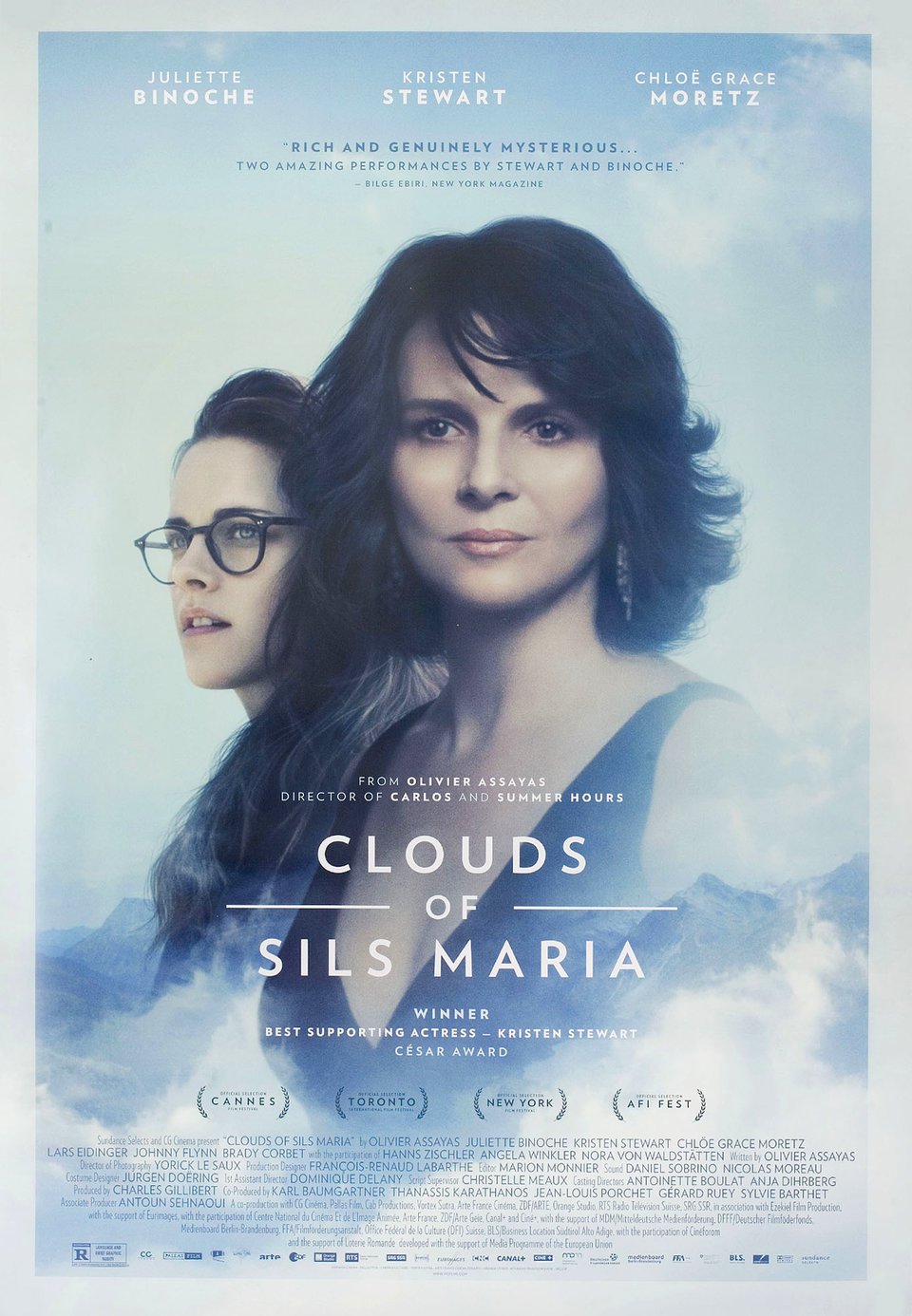

“It’s theatre. It’s an interpretation of life. It can be truer than life itself.”
Olivier Assayas’ Clouds of Sils Maria is a rangy cinematic essay on the nature of aging, the passage of time, life’s imitation of art, our connection to fictional characters, the way our perceptions change as we mature, and the function of cinema in modern society. Though the writer-director works through a thematically satisfying conceit that blurs the lines between fiction and reality, he undermines his salient musings by accentuating them repeatedly, eventually to the detriment of his drama.
As a free-spirited young woman, Maria (Juliette Binoche) found her breakthrough role playing Sigrid in Wilhelm Melchior’s Maloja Snake, a play and then a film about a turbulent romance between the middle-aged Helena and her young assistant. In the wake of the playwright’s death, Maria reluctantly agrees to appear in a re-staging of the play, only now she will inhabit the role of the older woman rather than the part that she originated decades before and still identifies with. Taking on the role of the nubile seductress is Jo-Ann Ellis (Chloë Grace Moretz), a young Hollywood sensation known for her myriad scandals and nonconformist sensibilities.
Reluctant to hand over her character—which is tied up in accepting her own mortality—Maria travels to the Alps to rehearse in the late writer’s remote cottage. It’s here that the film most fruitfully explores its themes as Maria and her personal assistant Valentine (Kristen Stewart) rehearse the play, argue over its interpretation, and realize their own Sigrid-Helena dynamic. Indeed, there is so much crossover that we’re often left wondering if Maria and Valentine are having a conversation or reading lines.
If nothing else, Clouds of Sils Maria is a showcase for its two leads—Binoche for the personal resonance of the role, but especially Stewart for her natural performance. Her absence in the last act leaves the film quite empty (which may be intentional). Even when the writing falters, Stewart’s subdued approach perfectly suits her character.1
And make no mistake—the writing does falter. It is generally effective when focusing on its characters, particularly on Maria’s angst and Valentine’s tempestuous support, but when it tries to find depth in its fictional play it rings hollow (Birdman excelled with a similar scenario by adapting a Raymond Carver story instead of winging a low-grade fake). Worse yet is when it turns confessional regarding popcorn movies by staging a pastiche of an effects-laden space opera, not to mention its surplus of superfluous asides and elliptical fade-outs.
Though it bears thematic similarities to several classic films—All About Eve, Sunset Boulevard, Persona—all it really does is continuously reiterate those themes in increasingly detached and tedious fashion.
1. Choosing to watch a movie necessarily means choosing not to watch a million others. And so while I’m aware that Stewart’s reputation has recovered post-vampire series, I’m just now getting around to catching up on some of the work she’s done in the past decade or so. Looking forward to Certain Women, Personal Shopper (also directed by Assayas), and Crimes of the Future.